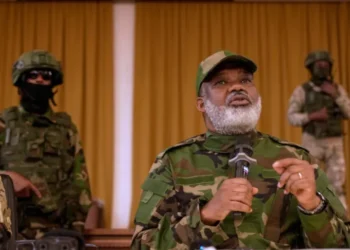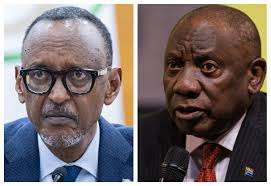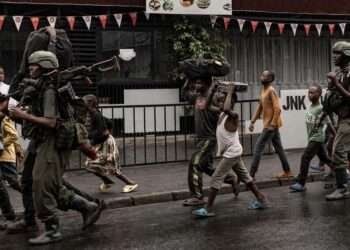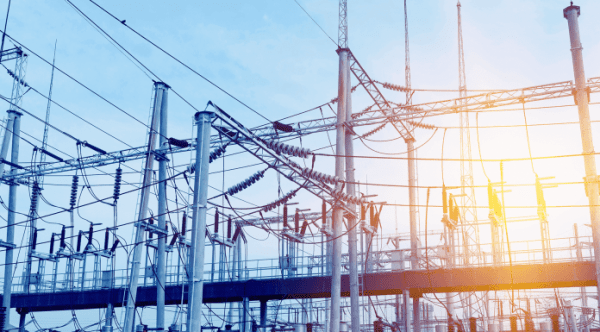South Africa’s African National Congress (ANC) has started discussing a potential coalition with five other political parties to create a government.
On Wednesday, June 5, the ANC clarified that no conclusive decision has been reached, and the discussions are in their early stages.
Following the recent election, South Africa encountered a political deadlock as the ANC, which has held a majority for three decades, experienced a decline in its support.
While the ANC remains the largest party, it no longer holds the same level of control it once did. Despite this shift, no other party has managed to surpass the ANC’s electoral dominance.
In a press briefing, ANC representative Mahlengi Bhengu-Motsiri disclosed that preliminary discussions with opposition parties had taken place. This included the Democratic Alliance, Economic Freedom Fighters, and three additional minor parties.
She said the ANC had “repeatedly” reached out to the new MK Party of former President Jacob Zuma for talks, but there had been “no positive response.”
Former ANC leader Jacob Zuma has shifted his allegiance away from the party and is now openly critical of current President Cyril Ramaphosa.
The ANC has characterized the ongoing talks with other parties as an effort to establish a government of “national unity.” The party also emphasized that a formal coalition is not the sole option under consideration.
The ANC said it is open to engaging with any one of the more than 50 parties that contested last week’s election to find a solution.
Parliament must convene by June 16 to elect a president — with Ramaphosa seeking a second term — and an agreement of some sort needs to be in place for that to happen.
“We have been meeting with all parties that are keen to contribute ideas on how we can collectively move our country forward to form a government that ensures national unity and stability.”
Bhengu-Motsiri
Election results show that the ANC secured only 159 out of 400 parliamentary seats. Following closely behind are the Democratic Alliance with 87 seats, the uMkhonto weSizwe Party (MK Party) with 58 seats, the leftist Economic Freedom Fighters with 39 seats, and the Inkatha Freedom Party with 17 seats.
ANC Coalition With Opposition Raises Concerns
Analysts are sounding alarms over the ANC potentially alienating its core base by considering alliances with the three main opposition parties. The Economic Freedom Fighters and the MK Party broke away from the ANC.
The MK Party made a notable debut in the elections, emerging as the third-largest party with 14% of the national vote. It managed to attract a substantial number of traditional ANC supporters, despite being formed just six months before the election.
Moreover, the potential alliance between the ANC and the Democratic Alliance (DA) is anticipated to encounter resistance from certain factions within the ANC, as well as from its allied partners such as the Congress of South African Unions (Cosatu) and the South African Communist Party.
“What’s key is that a coalition led by the ANC and President Ramaphosa, be progressive, biased towards the needs of working-class communities, defend the rights of workers, grow the economy and create jobs, tackle crime and corruption, invest in public services and unite the nation.”
Matthew Parks
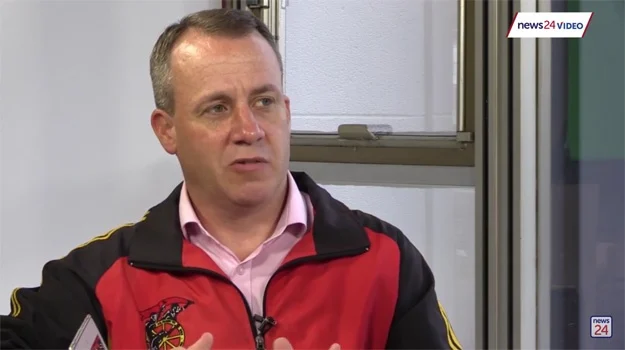
Possible tensions ahead of the talks between the ANC and the MK Party were anticipated as election results became clear. The MK Party spokesman stated that the party would “not negotiate with the ANC of Cyril Ramaphosa.”
A senior ANC member and former Defence Minister Siphiwe Nyanda is among those who have publicly warned the ANC against going into a coalition with Zuma’s MK Party.
“Now that Zuma has inflicted so much damage on the ANC from the outside there is a rush to bring him back by his accomplices who are still embedded in the leadership of the ANC, so that he can finish his job of destroying the once proud liberation movement of the oppressed people of South Africa.”
Siphiwe Nyanda
READ ALSO: Global Financial Architecture Unfavourable to Africans– Amin Adam


